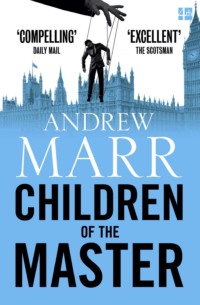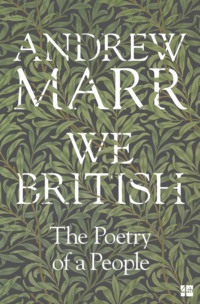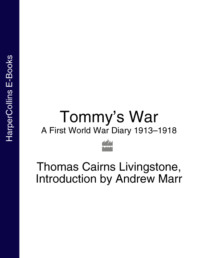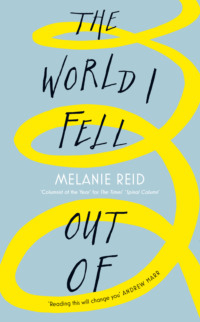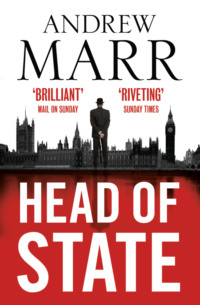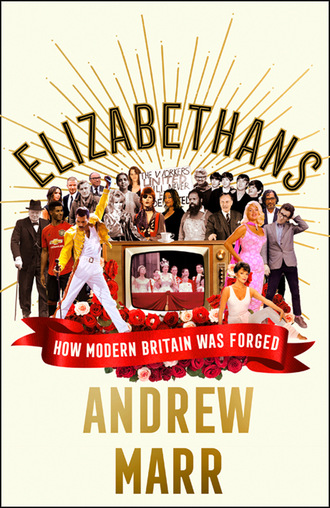
Полная версия
Elizabethans
By the summer of 1970, when he had been repeatedly raided for non-existent drugs and had his licence revoked for technical infringements, this relatively diffident, even shy man who was in fact strongly opposed to drugs, had had enough. With the help of a recently formed group, copying their more famous US counterparts, the British Black Panthers (who had been able to acquire a headquarters in Britain when the art critic John Berger donated to them half his winnings for the Booker Prize for best novel), Crichlow organized a protest march around a handful of local police stations. It was always going to be angry and noisy, but it wasn’t supposed to be a very big deal.
The banners attacking the ‘pigs’ were aggressive enough and there were ragged chants of ‘black power’, but those who took part estimated that only about 150 people were involved. The police responded with massed rows of constables in military formation, using snatch squads to haul out protesters and fling them into the backs of vans. The Mangrove demonstration was tiny compared to the major protests of the day against the Vietnam War, the industrial disputes of the time or indeed the urban riots of the late 1980s and early 1990s. But it attracted a barrage of prosecutions for riot, affray and physical assault on police officers. Nine black activists, seven men and two women, faced a variety of charges at Paddington Magistrates’ Court, where some of the police charges of incitement were immediately dismissed.
There then followed one of the longest trials in British legal history, at the Old Bailey. Two of the nine, Darcus Howe and Althea Jones-LeCointe, decided to defend themselves and demanded to be tried by an all-black jury. The legally trained Darcus Howe called in aid Magna Carta’s insistence on the right to judgment by a jury of one’s peers. In the decades that followed, Howe would go on to be one of the most familiar and consistent critics of British racism. In the past, he argued now, Welsh defendants had been allowed a Welsh jury, Italians a half-Italian one, and so on. He got nowhere; but then the defendants successfully challenged potential juror after potential juror until they got two black ones. The trial went on for fifty-five days in 1971, with a constant small Black Power demonstration outside, as the prosecution did their best to persuade the court that the Mangrove Restaurant was ‘a haunt of criminals, prostitutes and ponces’.
In the end, it seemed, the Mangrove was indeed just a restaurant: all the defendants were acquitted. By then, the judge had horrified both the Met Police and the Home Office by saying in his summing up that the case had ‘regrettably shown evidence of racial hatred on both sides’. The implication of institutional racism within the police in London, which would become central to the Stephen Lawrence murder case in the 1990s, was something that the Met tried to have withdrawn. The judge, having reflected deeply, refused. Much later, in 1998, in his inquiry into the Lawrence affair, another judge, Sir William Macpherson, concluded that the Metropolitan Police had been ‘institutionally racist’. If the Mangrove Nine affair had been – as it seemed – a trial of strength between the British Elizabethan state and its black subjects, then the subjects had won.
Frank Crichlow himself returned to Notting Hill and his restaurant, and set up the Mangrove Community Association to help drug users and alcoholics. Thanks in part to the socialist expatriate American Claudia Jones, who said she was trying to ‘wash the taste out of our mouths’ after the racist Notting Hill riots of 1958, West London was beginning to experience its annual carnivals. These have been compared to the ancient Bartholomew Fairs, a joyful popular celebration of misrule which continued into the nineteenth century. By the time the Mangrove Nine trial was finally over, the Notting Hill carnival was beginning to assume its modern form, with massed steel bands and exuberantly costumed dancers. The Mangrove became one of its hubs. Crichlow was one of its leading supporters.
The police continued to stalk him. Despite being hostile to marijuana, he was charged with drug offences in 1979 – and again cleared. Nine years later police officers smashed open the front of the Mangrove with sledgehammers in yet another drugs raid. This time Crichlow was charged with possession of heroin and cannabis, though he always insisted these were planted. He was – yet again – acquitted. Crichlow took action against the police for false imprisonment and malicious prosecution, finally winning damages of £50,000 in 1993. He died in 2010 of prostate cancer, and is remembered as one of the fathers of the Notting Hill black community, a pioneer in the fight for black rights. Subject for much of his life to ‘punishment by acquittal’ he was always gentle, always modest, always determined.
We have looked at class and morality, as they ensnared Ruth Ellis but not Diana Dors. We have looked at the toxic effects of shaking up sex and a crumbling establishment, leading to a rigged, unjust trial; and seen how the challenges of multiracial culture eventually provoked another, more influential trial. The first part of the Queen’s reign had seemed a disastrous period for the old establishment. But sadly, and quietly, one establishment is always being replaced by another. Away from the headlines, at just the same time, a new moral order was forming itself.
12
THE DAVID AND JONATHAN OF PERMISSIVE BRITAIN
Often, pre-war homosexual affairs at Oxford and Cambridge were not merely private events. They affected the course of poetry, diplomacy and politics. The gay circles that intersected with student communist politics produced the infamous ‘Cambridge spies’. The secrecy of gay men in the age of criminalization, with their secret assignations and private language, may have laid them open to blackmail, but it certainly helped them become good espionage agents. Later, David Cornwell, writing as John le Carré, persuaded modern Elizabethans that, despite the obscure heroism of his protagonist George Smiley, there was something deep, dark and rotten at the heart of the security state; and that this had been rooted in the fascism-haunted 1930s, before it spilled over into post-war crises. History books and popular films, following a similar agenda, probed the gay student friendships whose actors later did so much work for Moscow.
But there was a less well-known pre-war gay relationship – at Oxford not Cambridge this time – which would deeply affect the Elizabethan age in another way. It had nothing to do with spying, or indeed communism. This story was about mainstream domestic politics and social change. For this brief and passionate affair drew together two of the most important reformers in post-war British politics. It was a friendship and a rivalry which lasted a lifetime. Both debonair, thrusting, louche Tony Crosland and quicksilver, sardonic Roy Jenkins could, in very slightly different circumstances, have been famous British prime ministers. Neither made it. But between them they can claim to have reshaped the country more effectively than many of those who did, including their theoretical leaders Harold Wilson and James Callaghan.
As a young man, Tony Crosland had been irresistibly glamorous. Abrasive and brilliant, with the face of a corrupted choirboy, he was brought up in the strict and puritanical Exclusive Brethren sect, before fighting in the war with the Royal Welch Fusiliers. As a paratrooper in Italy, he had observed one of the most shameful moments for the British Army in its entire history. In 1945 many tens of thousands of disarmed German, Russian, Ukrainian and Cossack prisoners were passed over to the Soviet Army. They were then executed or sent to communist concentration camps. Crosland was well aware of what was happening, writing in his diary: ‘all one saw was a lot of simple uncomprehending men being shepherded off under guard to a black and hopeless future: in the case of the officers, going to certain death. However, it all went off with only a single hitch …’
This traumatic experience hardened him against the Marxism that had attracted so many of his generation and pushed him instead towards a belief in social democracy. He was a tough-minded twenty-eight-year-old when he returned to Oxford in 1946 and threw himself into democratic socialist politics. The then Labour Chancellor of the Exchequer, Hugh Dalton, who had an eye for attractive young left-wing men, brought Crosland into his circle. By then, Crosland himself had seduced another socialist undergraduate.
Roy Jenkins was the son of a Welsh trade unionist who had served the National Union of Mineworkers. Jenkins left Oxford during the war to work in the British Army as an intelligence officer. He, like Crosland, would become central to the social democratic project of the more leftish Elizabethans. Politically, they were two of a kind. Jenkins remembered first coming across the older man: ‘Tony was immensely good-looking and elegant. He wore a long camel-hair overcoat, and drove a powerful MG sports car known as the Red Menace. I found him rather intimidating, until he came to my rooms on some minor Labour Club business and remained talking for nearly two hours. Thereafter, I saw him nearly every day.’
The biographer John Campbell later confirmed, using love letters, that Jenkins had been seduced at least once by Crosland. From early on, Crosland realized that this lisping, apparently shy Welshman, who was already training himself to speak like a member of the upper classes, had an almost insatiable ambition, a well-disguised steely inner core and a determination to exercise power. Crosland would go on to write the book that provided the basic text for Labour thinking about society for decades to come; Jenkins would make himself the pivotal figure in a cascade of social reforms that followed it.
The two spent the rest of their lives eyeing each other, ambitious rivals whose friendship would endure to the end. Both were absolutely central to the shift in laws and values that would mark the middle years of the Queen’s reign. They were both, through most of their adult lives, uncompromisingly and enthusiastically heterosexual; but they remained close allies for decades. Intellectuals, war veterans, deep drinkers and promiscuous lovers, they were the David and Jonathan of the permissive society. Yet we have some important things to blame them for: together they may have made Britain more civilized, but they didn’t make it much more open or more equal. And that was down to the story of British schooling – Crosland’s greatest cause, and biggest failure.
Конец ознакомительного фрагмента.
Текст предоставлен ООО «ЛитРес».
Прочитайте эту книгу целиком, купив полную легальную версию на ЛитРес.
Безопасно оплатить книгу можно банковской картой Visa, MasterCard, Maestro, со счета мобильного телефона, с платежного терминала, в салоне МТС или Связной, через PayPal, WebMoney, Яндекс.Деньги, QIWI Кошелек, бонусными картами или другим удобным Вам способом.


